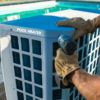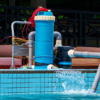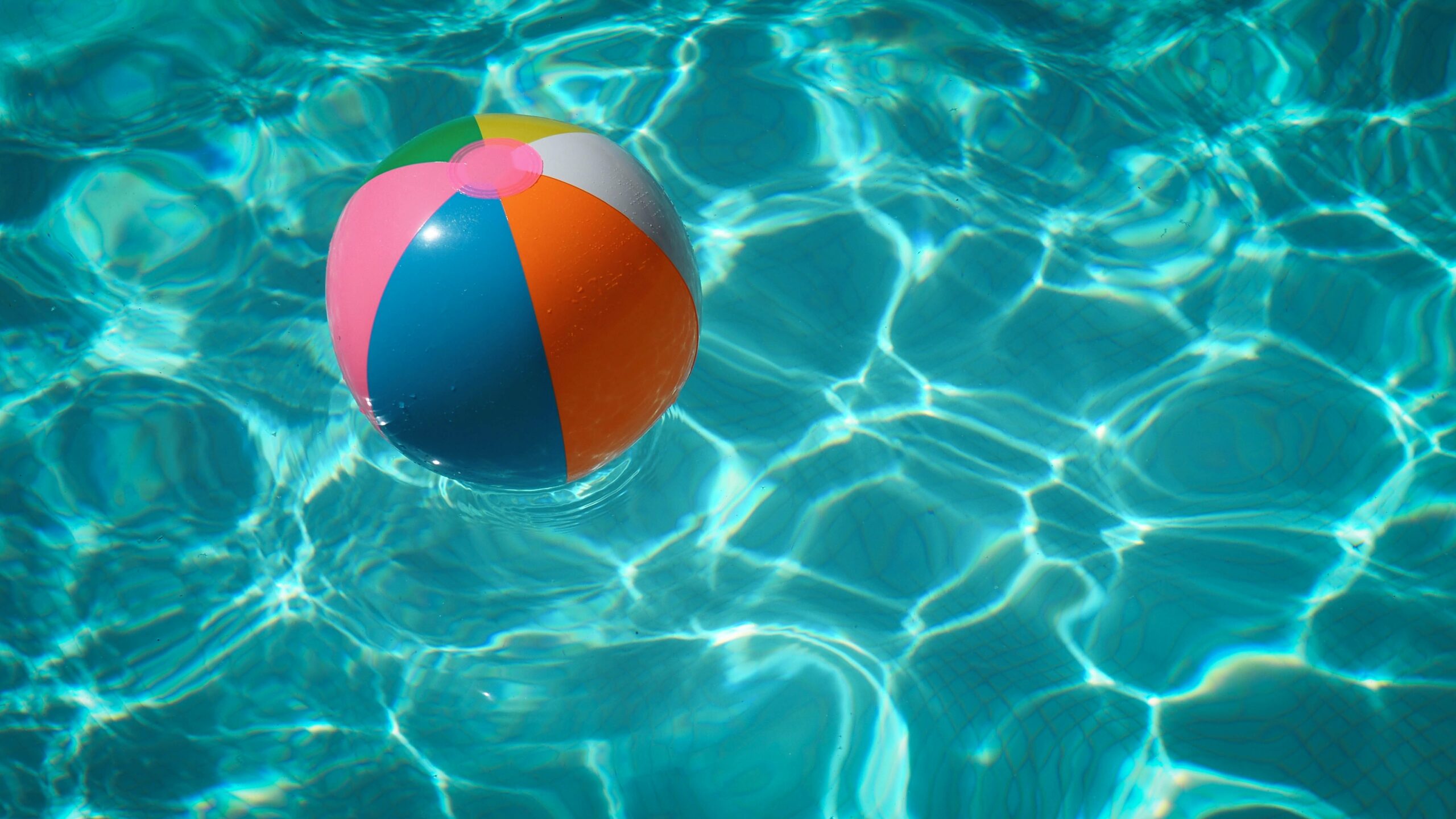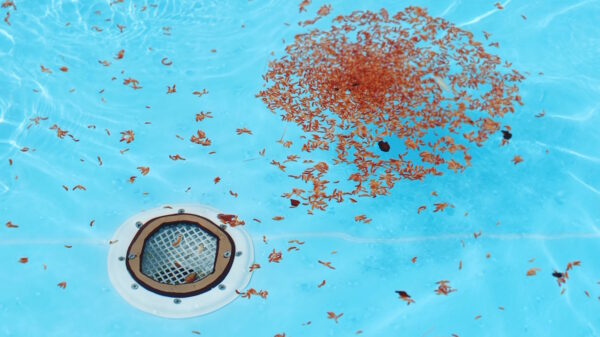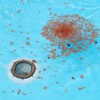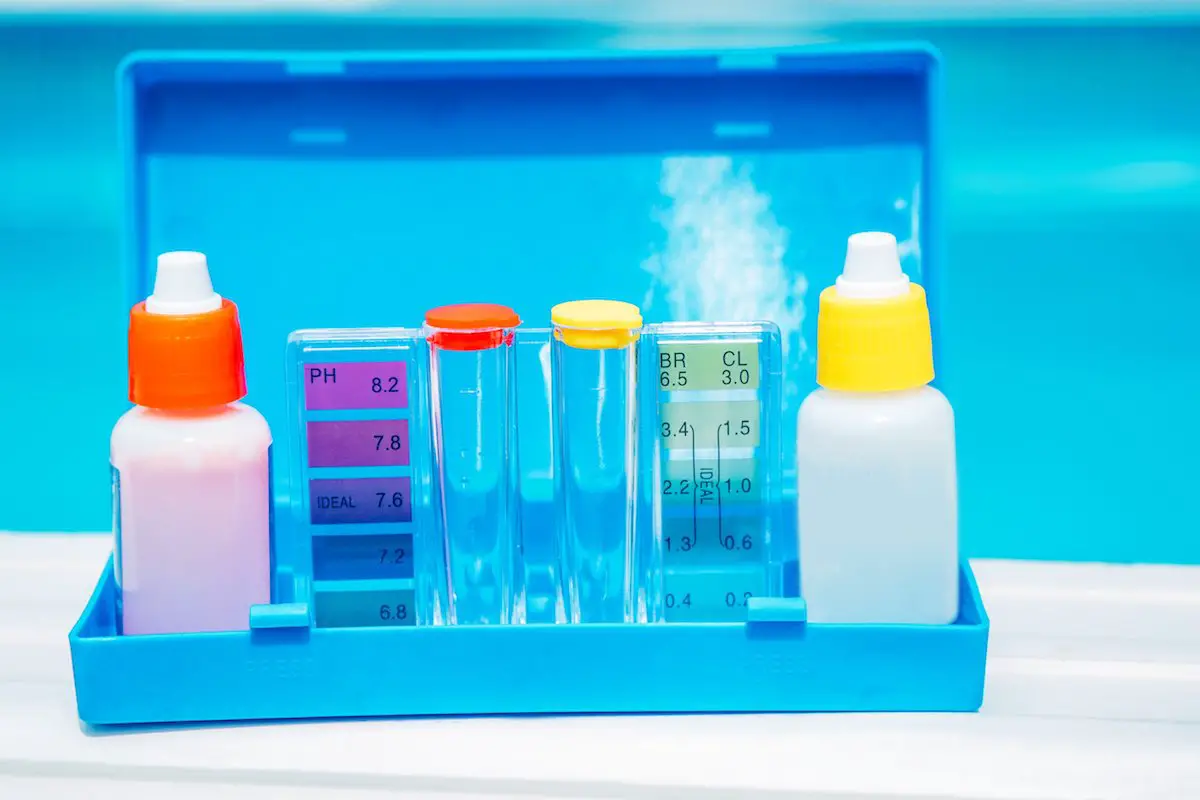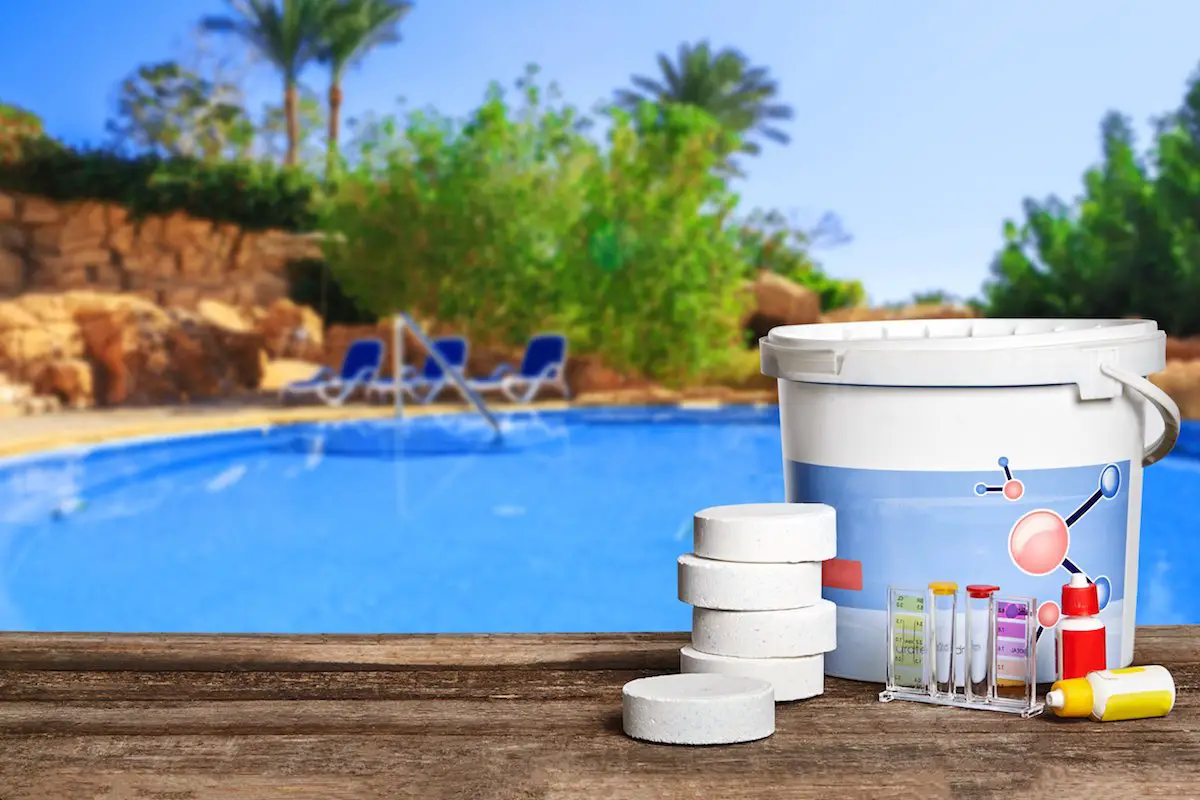If you own a pool, you may notice that your pool gets cloudy and not as clean and clear as you would like. Sometimes, this is due to phosphates, but what are they? Phosphates are a combination of the element phosphorus and oxygen, and they are found naturally in many rocks and minerals. What if you don’t notice rocks in your pool, so then where do phosphates come from?
Phosphates occur in pools because of runoff from fertilizers, lawns, and gardens, as well as human and animal waste. When these materials decompose, they release phosphates into the water. Phosphates are also found in pool chemicals such as algaecides and some types of cleaners.
Too many phosphates in a pool can lead to excessive algae growth. Algae bloom not only makes your pool look dirty but can also be harmful to swimmers. Excess algae can cause skin irritation and respiratory problems. Overall, phosphates can cause serious issues for your pool if they are not maintained. If you are looking into picking up a new skill and learning how to control and maintain the phosphate levels in your pool, then keep reading!

How to Keep Phosphates Out of Your Pool
There are a few things you can do to help keep phosphates out of your pool:
1. Use phosphate-free fertilizers on your lawn and garden.
This will help keep phosphates out of your pool by eliminating potential materials that can lead to phosphate levels rising.
2. Cover your pool when it’s not in use to prevent runoff from entering.
This will also help prevent anything like fertilizers or other materials from entering your pool and raising phosphate levels.
3. Properly maintain your pool and filter to reduce the need for chemicals.
These chemicals can lead to rising phosphate levels, so using them as little as possible will help eliminate any issues.
4. Have your pool water tested regularly
You should test your pool water regularly to ensure that phosphate levels are within the recommended range. This is an important habit to make in your pool maintenance schedule as finding high phosphate levels when they begin to rise makes reducing them back to normal much easier.
Why It Is Important to Keep Phosphates Out of Your Pool
Phosphates are essential for plant and algae growth, but too many can cause problems in your pool. Algae blooms can make your pool look dirty and cause skin and respiratory irritation. Excess phosphates can also lead to higher levels of chlorine being needed to maintain a clean pool. Make sure to clean your pool regularly to ensure that phosphate levels are within the recommended range. This is important to make sure that issues like algae do not get out of hand and become difficult to get rid of.
What Is the Recommended Range for Phosphates In a Pool?
The recommended range for phosphates in a swimming pool is 0-0.3 ppm (parts per million). This range will help reduce the possibility of algae growth while still providing enough phosphate for proper chemical balance. Test your pool water regularly to ensure that phosphate levels are within the recommended range.

What to Do About High Phosphate Levels
If you find that your pool has high phosphate levels, there are a few treatments you can use to remove them:
1. Add a phosphates remover to your pool according to the manufacturer’s instructions.
2. Use a chlorine or bromine shock treatment to kill algae and bacteria.
3. Replace some of the water in your pool with fresh water.
By taking these steps, you can help keep phosphate levels under control and enjoy a clean, safe pool all summer long.
What Are Phosphates?
In order to understand where phosphates come from in pools, it is important to also understand what phosphates are and what function they serve in pool water. Phosphates are a combination of the element phosphorus and oxygen, and they are found naturally in many rocks and minerals. They can also be found in fertilizers, detergents, sewage, and even animal waste such as dog poop. Phosphates enter pool water through a variety of means, including runoff from lawns and gardens (fertilizer), rainwater (sewage or wastewater), swimmers (body oils and sweat), and even fill water (detergents). While phosphates serve an important role in plant growth, they can cause problems in pool water. When phosphate levels get too high, they can encourage the growth of algae and other aquatic plants. This can lead to cloudy water and even green pool syndrome.
In extreme cases, phosphate levels that are not properly controlled can result in a complete loss of pool water clarity. This is why it is important to test for phosphates on a regular basis and take steps to remove them if they get too high.
Pool Phosphate Treatments
There are a variety of phosphate removal products on the market, including filters, chemicals, and mineral treatments. The most effective way to remove phosphates from pool water is to use a combination of these methods.
For example, you can use a phosphate remover chemical in conjunction with a mineral treatment such as Zeolite. The chemical will help to remove the phosphates that are already in the water, while the Zeolite will help to prevent them from entering in the first place. You can also install a phosphate removal filter, which will help to keep levels low over time.
In addition to using phosphate removal products, there are a few other things you can do to keep phosphates out of your pool.
1. Make sure that you are using phosphate-free fertilizers on your lawn and garden.
2. Cover your pool when it’s not in use to prevent runoff from entering.

3. Properly maintain your pool and filter to reduce the need for chemicals.
4. Have your pool water tested regularly to ensure that phosphate levels are within the recommended range.
By taking these steps, you can help keep phosphates under control and enjoy a clean, safe pool all summer long and enjoy time with your family and friends.
Are Pool Phosphate Treatments Expensive?
Phosphate removal products are not typically very expensive. For example, a bottle of phosphate remover chemicals can cost as little as $10. A mineral treatment such as Zeolite may cost slightly more, but it will last for several months. Phosphate removal filters can also be found for a reasonable price, and they will help to keep levels low over time.
In addition to the initial cost of the product, you may also need to purchase some other supplies such as test strips and shock treatments. However, these items are typically very affordable and can be found at most pool supply stores.
Are Pool Phosphate Treatments Safe?
Yes, phosphate removal products are safe to use in your pool. However, it is important to follow the directions on the packaging carefully. For example, you should always add chemicals to your pool water according to the manufacturer’s instructions.
Preventing Pool Phosphates
The best way to prevent problems with phosphates in your pool is to avoid them altogether. This means being careful about what you add to your pool water and making sure that swimmers shower before getting into the pool. It also means being vigilant about testing for phosphates and taking steps to remove them if they get too high. With a little bit of effort, you can keep phosphates under control and enjoy clear, clean pool water all season long.
Why Do Phosphates Make Algae Grow in Pools?
While phosphates serve an important role in plant growth, having too many of them in your pool can lead to serious issues. Phosphates are a natural food source for algae, and they can encourage the growth of this aquatic plant. This is why it is so important to test for phosphates on a regular basis and take steps to remove them if they get too high. If these levels become too high, it can become difficult to return these levels back to normal.
Can I Swim In a Pool With High Phosphate Levels?
No, you should not swim in a pool with high phosphate levels. When phosphate levels get too high, they can encourage the growth of algae and other aquatic plants, leaving you with an unpleasant swimming experience. Overall, it is best to wait until the issue is fixed and phosphate levels return back to normal before swimming in your pool again.
What Are the Best Products for Removing Phosphates From Pool Water?
There are a variety of phosphate removal products on the market, including filters, chemicals, and mineral treatments. The most effective way to remove phosphates from pool water is to use a combination of these methods. By taking these steps, you can help keep phosphates under control and enjoy a clean, safe pool all summer long.
Managing Phosphate Levels In Your Pool
By now, you know the importance of maintaining an appropriate phosphate level in your pool. This is why it is important to test for phosphates on a regular basis and take steps to remove them if they get too high. There are a variety of phosphate removal products on the market, including filters, chemicals, and mineral treatments. The best way to prevent problems with phosphates in your pool is to avoid them altogether. This means being careful about what you add to your pool water and making sure that swimmers shower before getting into the pool. With a little bit of effort, you can keep phosphates under control and enjoy clear, clean pool water all season long!


